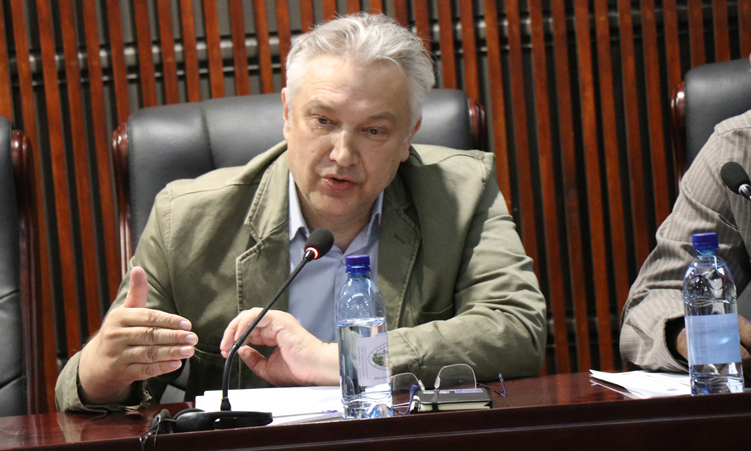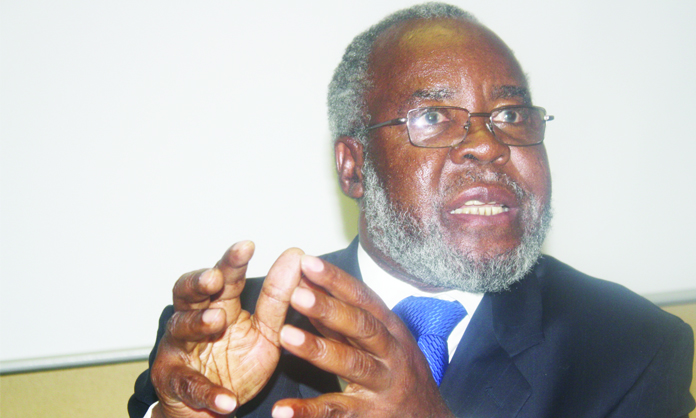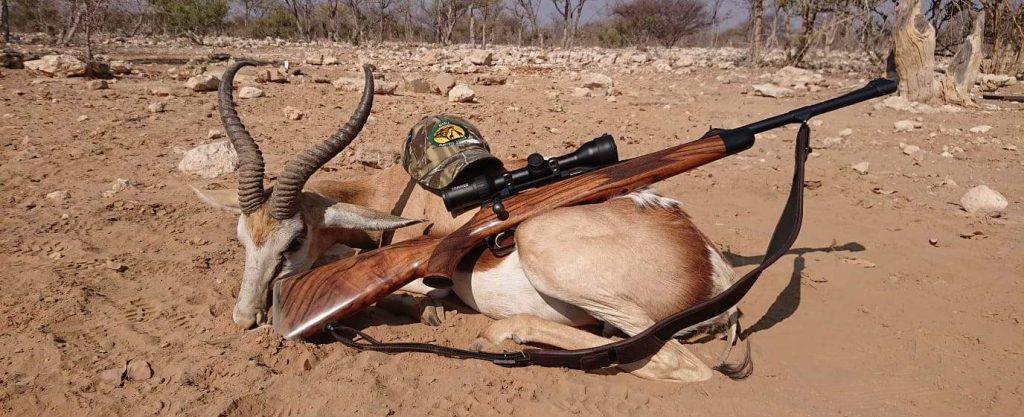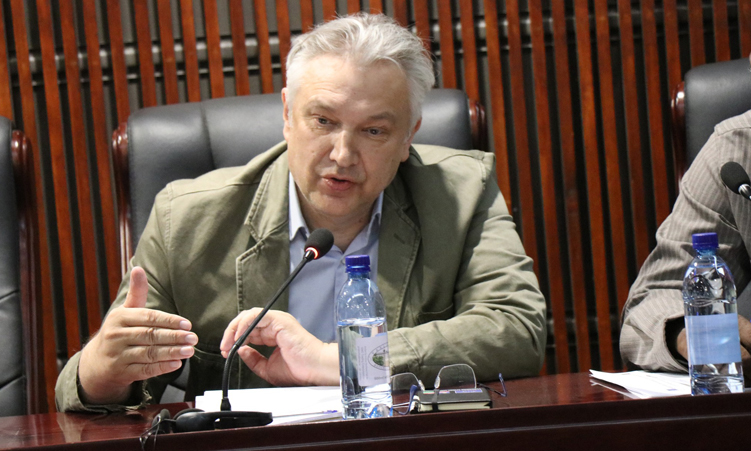United States of America president-elect Donald Trump could cut down on development aid and other financial support to countries like Namibia.
Trump was re-elected yesterday, making a historic comeback to the White House by beating Democratic Party candidate and vice president Kamala Harris yesterday.
His win came a day after he used misogynistic language to refer to Harris, adding to his reputation of being sexist.
The United States (US) government has been a key international funder of Namibia’s health and environment sectors for years.
Two years ago, the US handed over seven million condoms and 2.6 million lubricant units to the Ministry of Health and Social Services to address supply shortages. Institute for Public Policy Research executive director Graham Hopwood says the second Trump term in office will be unpredictable and possibly chaotic.
“This could see him cutting aid, including programmes like the US President’s Emergency Plan for AIDS Relief (Pepfar) and other projects, such as supporting renewable energy. “We’ll have to wait and see, but his recent rhetoric indicates he will not be inclined to have his administration assisting Africa,” he says.
Hopwood says the Trump administration is likely to be more inward-looking, xenophobic and extreme.
“Judging from his first period in office (2016 to 2020), Trump is not interested in Africa. He did, however, leave existing aid programmes such as Pepfar in place after being persuaded by George Bush that it was crucial for saving lives,” he says.

Hopwood says Pepfar has been enormously beneficial to Namibia’s health sector and has helped greatly in mitigating the effects of HIV-AIDS.
“We are entering uncertain times,” he says.
Namibia’s former ambassador to the United States, Tuliameni Kalomoh, says foreign policy did not feature much during the election campaign.
“We export to the US beef, diamonds and uranium, among others. Our trade falls under the African Growth and Opportunity Act (Agoa) arrangement with the US, which existed even during Trump’s first term.
“The US also provides financial support to Namibia under Pepfar. Both these arrangements existed even during Trump’s first term. I doubt he would terminate either,” he says.
Kalomoh says Namibia should not adapt its policies in response to the election results of a given country.
“Three issues should be of grave concern to Namibia: Trump had recognised Moroccan sovereignty over Western Sahara: he recognised Israeli sovereignty over East Jerusalem, which is the capital of Palestine, he also recognised Israeli sovereignty over the Syrian Golan Heights captured by Israel during the 1967 war; and he tightened the economic and financial blockade against Cuba,” he says.
Kalomoh says neither Trump during his first term nor Biden paid sufficient attention to Africa.
“But he [Trump] made positive noises about ending the war in Ukraine. This make’s European North Atlantic Treaty Orgnisation (Nato) members extremely jittery,” he says.
Kalomoh says Africa should be concerned by Trump’s racist idiosyncrasies often expressed by calling African countries all sorts of uncomplimentary names.
The director of multilateral affairs in the Ministry of International Relations and Cooperation, Jerobeam Shaanika, believes there would be a shift in US policy towards Namibia because of a Trump win.
Shaaninika says during the first Trump administration, US foreign policy shifted significantly.
“The administration adopted a more transactional and nationalist approach, emphasising sovereignty and reducing focus on alliances,” he says.

OPTIMISTIC
Minister of health and social services Kalumbi Shangula says during Trump’s first term there were no significant changes regarding the health sector.
“Trump is not a newcomer, he has been there. We are confident things will run just smoothly,” he says.
The US has also provided strong funding to Namibian conservancies.
Minister of environment, forestry and tourism Pohamba Shifeta says the Trump administration will not have a negative effect on Namibia’s tourism industry.
“The US policy will not interfere with the movement of travellers. We will continue to attract tourists from the US,” he says.
“Trump was president before and we maintained cordial relations. He knows Namibia. His family comes here to hunt.”
Former diplomat Pius Dunaiski predicts that economic and trade relations would grow under the second Trump administration.
“The geopolitical shifts could drive stronger competition between the US and China. We should expect a diplomatic charm offence from the US in what could be described as Cold War 2.0.
“I am sure Agoa would be broadened for special import tariffs for Namibian products, particularly our beef,” he says.
Dunaiski foresees strong political relationships between the two countries.
“Against the backdrop of Namibia co-chairing the Summit of the Future and the massive oil and gas industry potential growth, I anticipate that Namibia would be seen as an important partner.

“Namibia will have to walk a tightrope between the US-led West and Brics intergovernmental grouping. Politically, the relationship can only grow,” he says.
Dunaiski says Trump’s return to the White House will have little or no impact on Namibia’s diplomatic relations within Africa.
“The Ministry of International Relations and Cooperation must navigate cautiously its relations with Russia and China not to offend the US, unlike SA, who feels the economic pressure brought on by its strong positions as a leading BRICS+ country,” he says.
Dunaiski says Namibia should position itself as neutral amid the current geopolitical shifts.
AMERICA FIRST
Foreign policy analyst Marius Kudumo suspects the Trump presidency will not focus on Africa.
“Foreign policy has not been a dominant focus of this American election, but rather an inward-looking approach on migration, the economy and other domestic issues,” he says.
Kudumo says the fear regarding Trump is policy unpredictability, including trade and foreign policy.
“The foreign policy of the US is grounded in the realist theory of international relations. This theory is underpinned by an anarchic international governance system and world order.
“Therefore, the powerful and influential will survive in the anarchic global order, and thus interests are based on the interests of the state and not human security,” he says.
“Both Republicans and Democrats ascribe to this theory. It is just that the Democrats moderate the application of the theory in practice compared to the Republicans,” he says.
Kudumo says Namibia and Africa should invest resources in their priority developmental sectors, such as education and health.
Popular Democratic Movement (PDM) president McHenry Venaani says American politics under Trump has had strong focus on the economy.
He said racial dominance in America helped Trump win the election.
Venaani said Trump would pursue an exclusive economic policy of trying to ‘make America great again’.
“In terms of global economic liberalisation, he will be very limited on that.
“But because of the current economic base of America, it must trade with the world,” Venaani says.
Stay informed with The Namibian – your source for credible journalism. Get in-depth reporting and opinions for
only N$85 a month. Invest in journalism, invest in democracy –
Subscribe Now!


